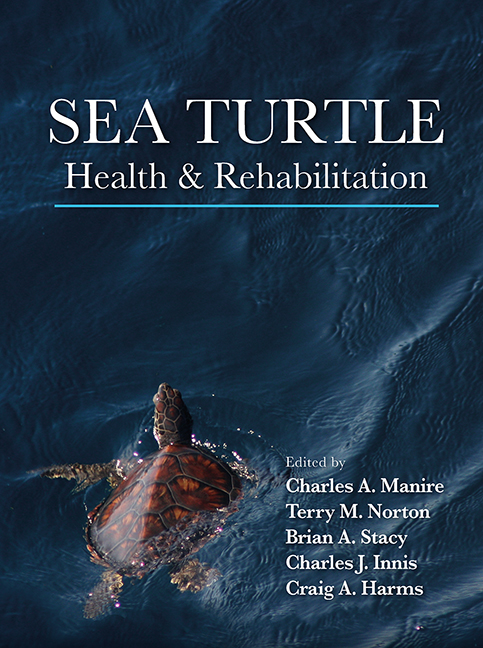Sea Turtle Health & Rehabilitation
$345.00
Edited by Charles A. Manire, Terry M. Norton, Brian A. Stacy, Charles J. Innis, and Craig A. Harms
Hardcover, 8.5 x 11, 1045 pages
ISBN: 978-1-60427-099-0
July 2017
Description
Sea Turtle Health & Rehabilitation is the first-ever comprehensive book on sea turtle husbandry, health, medicine, and surgery. This full-color guide presents extensive information for the rescue, evaluation, care, and rehabilitation of sick and injured sea turtles at every stage of life. In-depth information is provided on the physiological systems of sea turtles, causes and sources of illness and injury, diagnostic procedures, and medical and surgical treatments. This is an essential volume for veterinarians, veterinary students, veterinary technicians, rehabilitators, aquarists, biologists, and conservationists who work with sea turtles.
The chapters in this well-organized book are written by leading experts in their respective fields and contain state-of-the-art information not found in any other single source. The contents range from the life history of sea turtles to the more detailed and complex issues related to the diagnosis and treatment of conditions that are frequently encountered in sea turtles. Also included are chapters on important subjects related to sea turtle health and conservation, such as mortality investigation, fisheries interactions, oil spills and other environmental contamination, pathogens, cold stunning, and harmful algal blooms. Prior to the publication of this unique work, the sea turtle community relied on scattered chapters and papers to obtain information on sea turtle care and rehabilitation. Now, this information can be found all in one place.
Key Features
- Contains over 600 amazing color illustrations and photos to aid in the diagnostic evaluation and treatment of sea turtle injuries and illnesses
- Presents over 50 tables that assimilate and organize important data, particularly in the areas of clinical pathology and nutrition
- Includes Appendices with examination and evaluation forms, necropsy and stranding report forms, a sea turtle formulary, diet recipes, and tube feeding formulas
- WAV offers Chapter 7, Clinical Pathology, Figures in RGB format, Sea Turtle Stranding Network — Gross Necropsy Report, Sea Turtle Stranding and Salvage Network — Short Gross Necropsy Report, Sea Turtle Neurological Examination Form, Sea Turtle Stranding and Salvage Network — Stranding Report, Sea Turtle Clinical Evaluation Form, Sea Turtle Stranding Event — Case Summary Data Sheet, Sea Turtle Stranding Event — Sample Checklist — available from the Web Added Value Download Resource Center at www.jrosspub.com
About the author(s)
Dr. Charles Manire, DVM, is the Director of Research and Rehabilitation at the Loggerhead Marinelife Center (LMC) in Juno Beach Florida where he focuses strictly on sea turtle rescue, rehabilitation, care, and research. Prior to LMC, Dr. Manire helped design, build, and manage the sea turtle rehabilitation hospital at Mote Marine Laboratory in Sarasota, Florida where he also worked with dolphins, whales, manatees and fish. Dr. Manire has extensive experience in marine animal medicine and was the staff veterinarian at Atlantis Resort in the Bahamas where he was responsible for the veterinary care of more than 50,000 marine animals. He has authored or co-authored over 70 peer-reviewed articles on various marine species and has made scientific presentations at conferences around the world. He regularly reviews manuscripts for several professional journals and has served on multiple masters’ and doctoral committees for graduate students at the University of Florida, Texas A&M University, and Nova Southeastern University.
Dr. Terry Norton, DVM, DACZM, is the Director, Veterinarian, and Founder of the Georgia Sea Turtle Center on Jekyll Island. In addition, he has provided veterinary care for White Oak Conservation Center, Riverbanks Zoo, North Carolina State Zoo, and continues to oversee the veterinary aspects of the St. Catherine’s Island Foundation wildlife programs. Dr. Norton has developed and implemented the Georgia Wildlife Health Program, which has evaluated the health of many state and federally listed species. Currently, he volunteers his services for the Turtle Survival Alliance’s Turtle Survival Center and is the Vice President of the St. Kitts Sea Turtle Monitoring Network. Terry has been an adjunct professor at the University of Georgia, University of Florida, North Carolina State University, and Tufts University Cummings School of Veterinary Medicine. Dr. Norton has worked around the world on several projects related to wildlife health and conservation. He has published numerous articles for referred journals and authored many book chapters. In 2016, he was honored by the American Association of Zoo Veterinarians with the prestigious Emil Dolensik Award.
Dr. Brian Stacy, DVM, Ph.D., DACVP, serves as the veterinarian for the National Sea Turtle Program under the National Oceanic and Atmospheric Administration, National Marine Fisheries Service, Office of Protected Resources, in Gainesville, Florida, where he provides veterinary support and training for sea turtle stranding networks within the U.S. and abroad, investigates causes of strandings and mass events, and oversees a variety medical and welfare concerns related to anthropogenic activities, animal health, and disease. This role also included serving as lead veterinarian for sea turtle rescue and response during the massive Deepwater Horizon oil spill in 2010 and the subsequent Natural Resource Damage Assessment. Dr. Stacy is a member of the IUCN Marine Turtle and Crocodile Specialist Groups and holds a courtesy faculty appointment at the University of Florida, College of Veterinary Medicine. He has written a number of peer-reviewed publications, technical reports, and book chapters on sea turtles and other reptiles, diagnostic pathology, and mortality investigation.
Dr. Craig Harms, DVM, Ph.D., DACZM, is a Professor of Aquatic, Wildlife, and Zoo Medicine and Director of Marine Health Programs at the North Carolina State University (NCSU) Center for Marine Sciences and Technology, and adjunct faculty at the Duke University Marine Laboratory. He is a Past President of the American College of Zoological Medicine (ACZM) and of the International Association for Aquatic Animal Medicine. He has authored or co-authored over 125 peer-reviewed publications and several book chapters on zoological medicine. In 2011, he received the Stange Award for Meritorious Service by the Iowa State University College of Veterinary Medicine. Dr. Harms also provides clinical services to several North Carolina coastal facilities and organizations, including the Karen Beasley Sea Turtle Rescue and Rehabilitation Center, NCSU aquaculture research laboratories, the North Carolina Aquariums, and the sea turtle and marine mammal stranding networks.
Dr. Charles Innis, VMD, DABVP, is the Director of Animal Health at the New England Aquarium in Boston and oversees veterinary care of the Aquarium’s large and diverse collection of invertebrates, fish, amphibians, reptiles, birds, and marine mammals. In addition, Dr. Innis directs the veterinary management and rehabilitation of free ranging sea turtles that are stranded along the coast of New England, and participates in national and international emergency responses for injured and ill turtles. Dr. Innis holds adjunct teaching positions at Tufts University Cummings School of Veterinary Medicine and the University of Connecticut. He is a member of the IUCN Tortoise and Freshwater Turtle Specialist Group, the IUCN Marine Turtle Specialist Group, and is Past President of the Association of Reptilian and Amphibian Veterinarians. He has published numerous scientific articles and several textbook chapters on the medical and surgical management of turtles, and has been an invited speaker at national and international veterinary conferences. In 2011, Dr. Innis became one of the first veterinarians in the United States to be recognized as a reptile and amphibian specialist by the American Board of Veterinary Practitioners.
Table of Contents
Section 1: Introduction
Chapter 1: Sea Turtles in Context: Their Life History and Conservation
Chapter 2: Rehabilitation: Past, Present, and Future
Section 2: Husbandry
Chapter 3: Environment/Water Quality/Biosecurity
Chapter 4: Nutrition
Section 3: Basic Veterinary Techniques
Chapter 5: Physical Examination
Chapter 6: Diagnostic Imaging
Chapter 7: Clinical Pathology
Chapter 8: Necropsy
Section 4: Sea Turtles by System
Chapter 9: Integumentary System
Chapter 10: Musculoskeletal System
Chapter 11: Cardiovascular System
Chapter 12: Respiratory System
Chapter 13: Digestive System
Chapter 14: Hepatobiliary System
Chapter 15: Urogenital System
Chapter 16: Nervous System
Chapter 17: Hemolymphatic System
Chapter 18: Endocrine Organs
Chapter 19: Special Senses
Section 5: Current Therapy
Chapter 20: Critical Care and Emergency Medicine
Chapter 21: Therapeutics
Chapter 22: Analgesia and Anesthesia
Chapter 23: Surgery
Chapter 24: Endoscopy
Chapter 25: Trauma and Wound Care
Chapter 26: Cold-Stunning
Chapter 27: Buoyancy Disorders
Chapter 28: Chronic Debilitation
Section 6: Special Topics
Chapter 29: Parasitology
Chapter 30: Viruses
Chapter 31: Bacterial and Fungal Diseases
Chapter 32: Harmful Algae and Biotoxins
Chapter 33: Environmental Contaminants
Chapter 34: Field Techniques
Chapter 35: Fisheries and Sea Turtles
Chapter 36: Hatchling and Wash Back Management
Chapter 37: Sea Turtles and Oil
Chapter 38: Mortality Investigation
Chapter 39: Health Assessments
Appendix 1: Facilities and Organizations Involved in Sea Turtle Rehabilitation
Appendix 2: Commercially Available Tube Feed Formulas
Appendix 3: Gelatin Diet Recipes
Appendix 4A: Sea Turtle Stranding Network – Gross Necropsy Report Form
4B: Stranding and Salvage Network – Short Gross Necropsy Report
Appendix 5: Skeletal Muscles of Sea Turtles
Appendix 6: Sea Turtle – Neurological Examination Form
Appendix 7: Sea Turtle Formulary
Appendix 8: Sea Turtle Stranding and Salvage Network – Stranding Report Form
Appendix 9: Sea Turtle Clinical Evaluation Form
Appendix 10A: General Information about Live and Dead Sea Turtle Sampling During a Stranding Event
10B: Sea Turtle Stranding Event – Case Summary Data Sheet
10C: Sea Turtle Stranding Event Sample Checklist
Related products
-
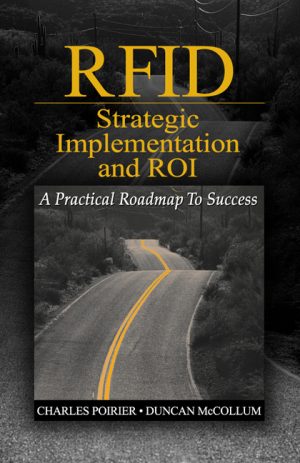
RFID Strategic Implementation and ROI
Retail Price: $49.95$44.95 Add to cart -
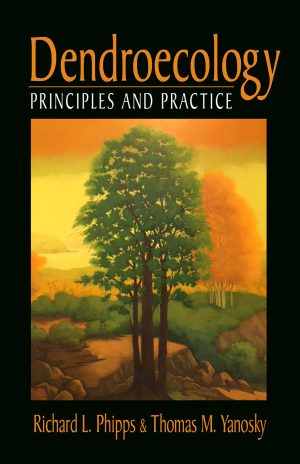
Dendroecology
Retail Price: $79.95$69.95 Add to cart -
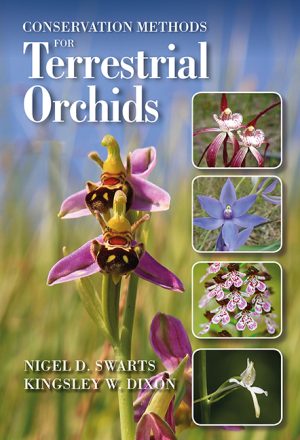
Conservation Methods for Terrestrial Orchids
Retail Price: $69.95$59.95 Add to cart -
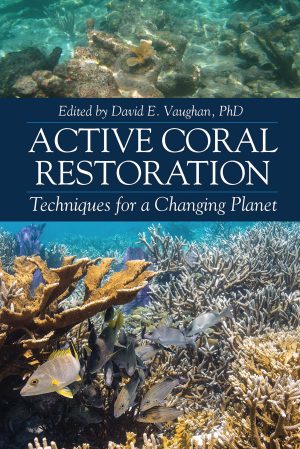
Active Coral Restoration
Retail Price: $99.95$89.95 Add to cart -

Intellectual Property for Integrated Circuits
Retail Price: $99.95$89.95 Add to cart

